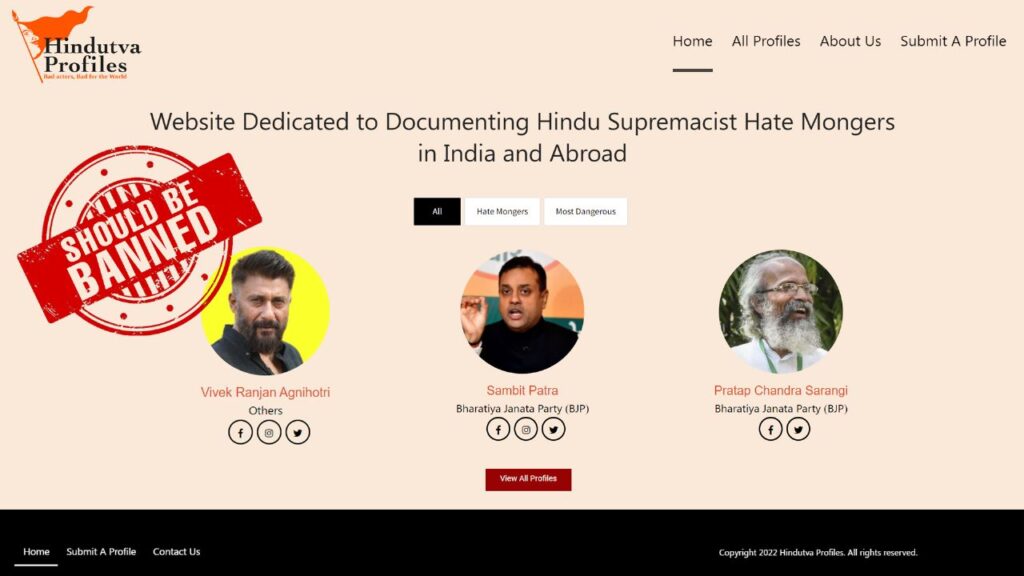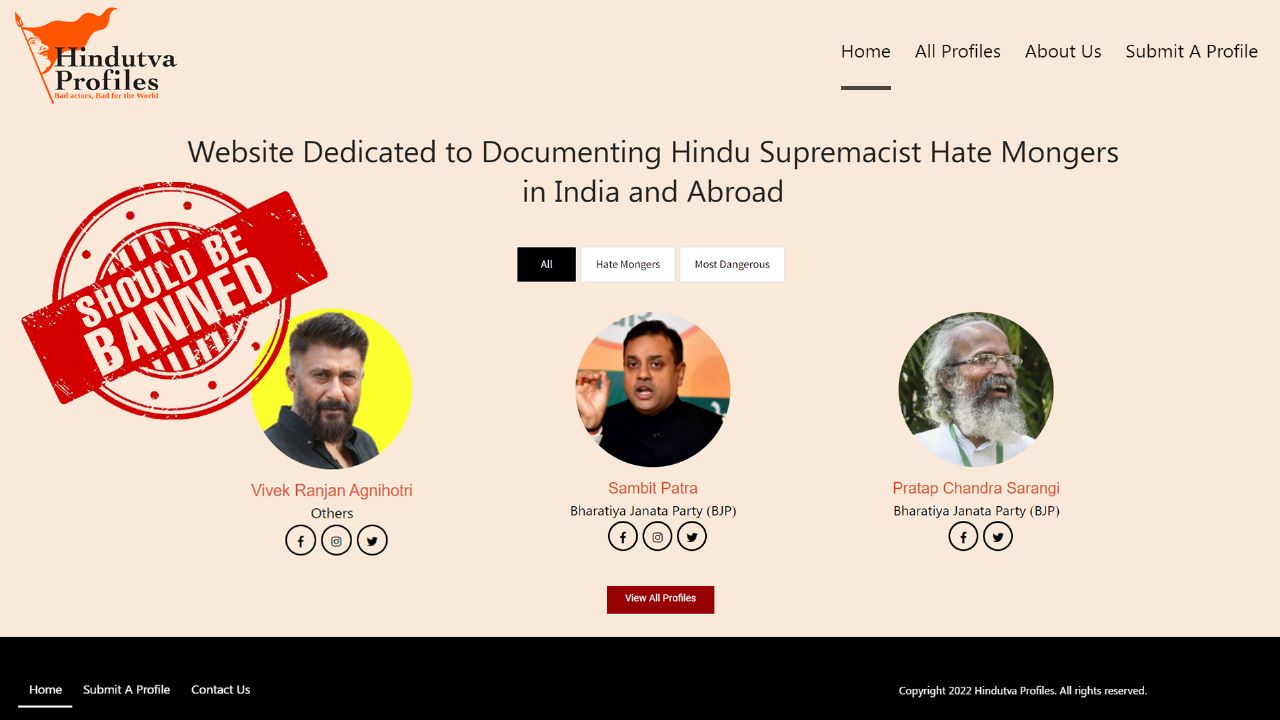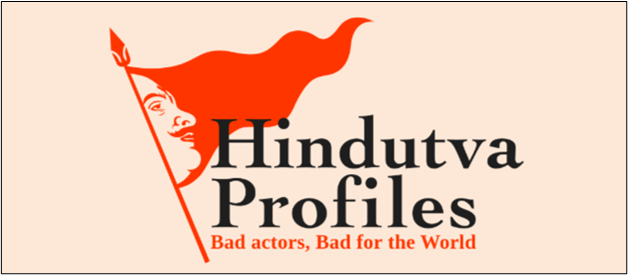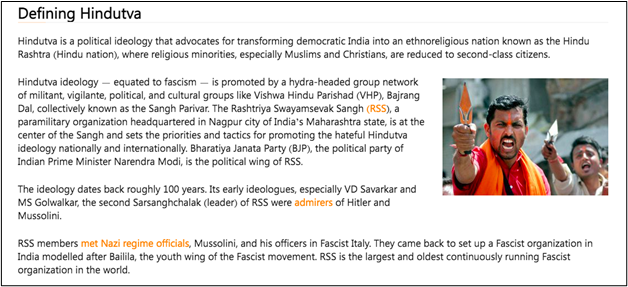
Bad actors, bad for the world
Websites like Hindu Profiles that peddle hate, target individuals and organizations Hitler style should be regulated, taken down
Prachi Mishra
A dubious website christened as ‘Hindutva Profiles’ has targeted India’s 148 key social and political leaders for attacks by hatemongers and Hinduphobes. Yoga guru Ramadev, retired major general G.D. Bakshi to Union Information and Broadcasting Minister Anurag Thakur figure prominently on the website’s ‘hit list’.

These socio-political leaders have been targeted by anti-India, anti-RSS, and anti-Hindu agencies with global linkages that are running the website. Apart from issuing a ‘hit list’, Hindutva Profiles has taken recourse to spread of false propaganda against these leaders.
The website claimed that RSS founders and key leaders of Hindutva forces sought inspiration from Nazi Germany and Mussolini’s fascist regime. But, the list in itself resembles a hit list as was common in Hitler’s regime. During Nazi Germany, the term ‘hit list’ typically referred to lists compiled by Nazi regime to target individuals or groups considered enemies or threats to their ideology.
Nazi German lists were primarily used to identify and track political opponents, dissidents, Jews, and persecuted groups. The Nazi regime employed a systematic approach to identifying, locating, and persecuting those individuals and groups they deemed undesirable.
Additionally, the Nazis created lists to target political opponents, such as members of resistance groups, communists, socialists, trade unionists, and other dissidents. These individuals were often arrested, imprisoned, and subjected to torture or execution.
Use of hit lists was part of Nazis broader system of persecution, which included propaganda, surveillance, imprisonment, forced labour and genocide. And, by targeting RSS and BJP leaders, the website precisely serves the same purpose.

Fig.1. Logo of website, Hindutva Profiles and its malignant tagline. Source: Hindutva Profiles

Fig.2. Misinformation spread about Hindutva and its origins. Nazi-RSS-Mussolini connect has been falsely interpreted here. Source: Hindutva Profiles.
The advent of technology has revolutionised our communication and information-sharing processes. While technology has brought significant advancements, it has also presented challenges in addressing rise of anti-Hindu sentiments and online hate speech. One disturbing manifestation of this issue is the existence of such websites that gained notoriety for promoting anti-Hindu sentiments and even managing and circulating this D-Day list.
The website also has a page dedicated to the genesis of RSS and its affiliates. The information presented on the page is not only factually manipulated but laden with misinformation.
If corrective measures were not rolled out in time, these individuals could be at threat from terrorist organisations and anti-India, anti-Hindu forces.
To combat online hate speech, it is imperative for internet users, communities, and online platforms to come together. Reporting mechanisms, both within the websites and through external channels, are essential in flagging and addressing offensive content.
Hindutva profiles just one among several such hate mongers. Hence, governments and legal entities should play a key role in implementing and enforcing laws that regulate hate speech on internet, ensuring that those who propagate hate are held accountable for their actions.
To ensure security and safety of individuals, governments all over the world and their relevant agencies should filter content and impose a blanket ban on such websites.
Fight against anti-Hindu sentiment and online hate speech requires a multifaceted approach. Online platforms must take responsibility for monitoring and removing hate speech, take measures to prevent their platforms from becoming breeding grounds for discrimination and persecution.
(author is contributing research consultant, Centre for Integrated and Holistic Studies, New Delhi based non-partisan think tank)

